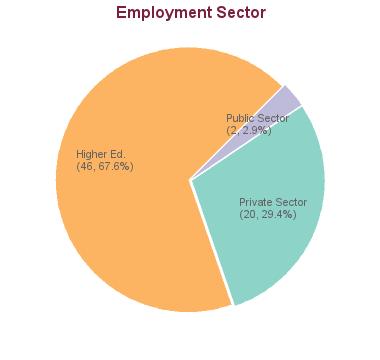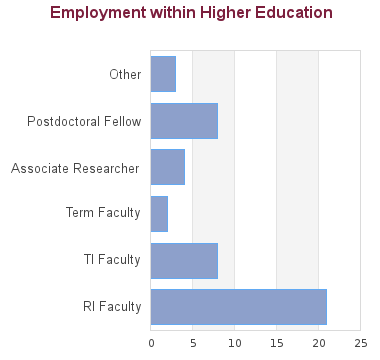Overview
Mathematicians use theoretical and computational methods to solve a wide range of problems from the most abstract to the very applied. UBC's mathematics graduate students work in many branches of pure and applied mathematics. The PhD program trains students to operate as research mathematicians. The focus of the program is on substantial mathematical research leading to the PhD dissertation. Students also develop their skills in presenting and teaching mathematics and its applications.
What makes the program unique?
UBC has one of the largest and most vigorous departments of mathematics in Canada. Our faculty routinely win national and international awards for their research and teaching achievements. We have an engaged and sociable cohort of graduate students who are essential members of a broad selection of active research groups. Each group holds a variety of seminars and events that allow graduate students, postdoctoral fellows, visitors and faculty to enjoy regular interaction.
UBC is the headquarters for the Pacific Institute of Mathematical Sciences (PIMS). PIMS hosts a plethora of mathematical events such as conferences and summer schools, greatly enriching the scientific environment in the quantitative sciences at UBC. Our mathematics students are also regular participants at the nearby Banff International Research Station for Mathematical Innovation and Discovery. Finally, our Institute for Applied Mathematics provides options for interdisciplinary studies for PhD students who wish to work in applied and computational mathematics.
Quick Facts
Intake
Program Enquiries
Contact the program
Supervisor Search
Departments/Programs may update graduate degree program details through the Faculty & Staff portal. To update contact details for application inquiries, please use this form.








